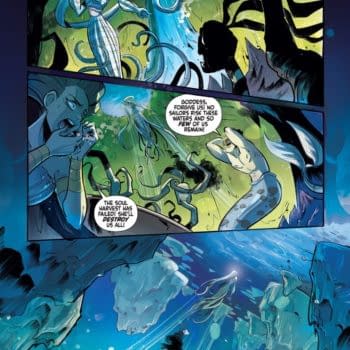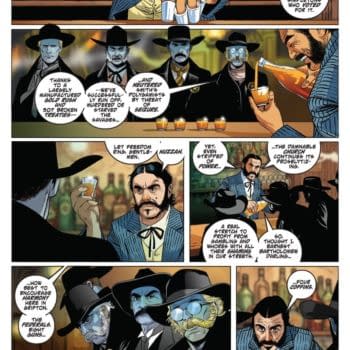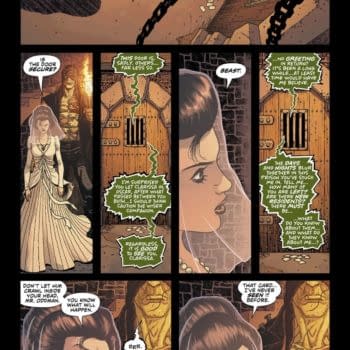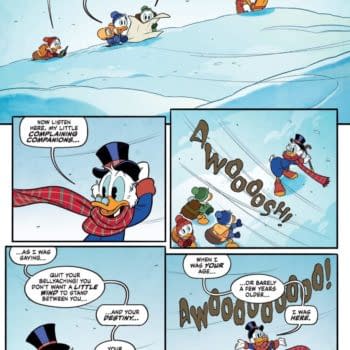Posted in: Comics | Tagged: alan robert, Comics, entertainment, legal, Matthew Tynan, Sheafe Walker, Thomas Crowell
Truth, Justice And Comic Book Law?
Ra'Chaun Rogers writes for Bleeding Cool:

Thomas Crowell, attorney and author of the book Pocket Lawyer, who served as the mod, opened the panel by prefacing that this was not legal advice and that people shouldn't divulge ongoing legal issues such as what you're going through with you book or that you killed your mother, this caused the crowd to roar with laughter. He mentions that the three main things he was going to talk about are, copyright, danger zones and how to find a publisher.
He then introduces the panelists starting with entertainment Lawyer Matthew Tynan, Alan Robert, writer of The Wire Hangers and Killogy, Sheafe Walker, another entertainment lawyer, and Allan Norico who illustrated the book and did animation for Dreamworks in the past. Before continuing he went on to let us know that questions needed to be saved till the end, so he didn't mean to ignore us but he, well he did.
Sheafe explained to the audience that the best way to go about copyrighting an idea is to actually create it. This was almost a revelation to me as I had thought that once you created something it only made it easier to get stolen without any legal documentation. Sheafe then elaborates saying you can't copyright an idea just how it's expressed. Tom gives an example of creating a character named Speedoman who looks exactly like spider-man and has his powers but a different name that he's sure Marvel will come after him. They both make it clear that you don't have to pay hundreds of dollars to places like legalzoom and the like to file for a copyright, it just takes 35 dollars at Copyright.gov.
Matt went on to explain that a copyright lasts for 70 years after your death and while you can technically do without having your work registered with the copyright office, you can't sue if someone infringes on your work. The group also addressed one major danger zone in comics which is work for hire. It was made very clear that work for hire is when you are paid for a job done and sign a contract saying that the things you create aren't yours but properties of the hiring entity. I felt this was an important thing to mention, what with the recent Siegel and Kirby cases in comics it would be very important for artists and writers to know what they're getting into when they go to work for any person or company, not just the big two.
The second issue which I felt was pertinent to address was the notion of co-ownership. This can get a bit dicey if the proper documents aren't drawn up and signed, especially if your co-creator isn't doing as much work as you are but still expects to get the same dividends. I felt this panel while not so large was a great one for burgeoning creators who don't have a great knowledge of law or the types of pitfalls, which exist in the comic industry. I also recommend checking out The Pocket Lawyer for extra help, I know I will.














